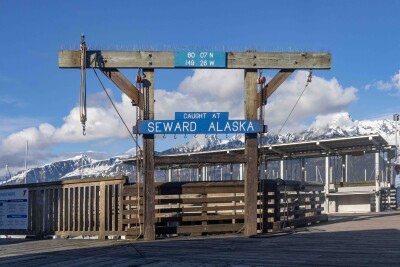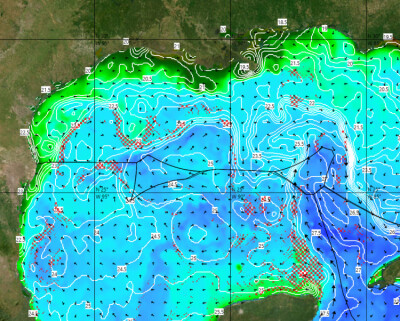Don't fast-track farms
Years ago, when a nuclear power plant was first proposed for the New Hampshire seacoast, the party line was that electricity would be so cheap, "we don't know how we're going to meter it."
It turned out to be so costly the power company couldn't charge enough to pay for it.
I don't want to get into a debate about nuclear power. The point I am making is that our enthusiasm for emerging technologies ought to be tempered with humility: There's always going to be much we don't know, and politics must always be factored in.
The emerging technology I am concerned about is not nuclear power but aquaculture. One of my great disappointments with Bill Hogarth was his championship, during his latter years at NMFS, of open-ocean aquaculture.
Aquaculture is a messy business. Why would anyone be surprised that an activity known as fish farming would turn bodies of water and waterways into the aquatic equivalent of feedlots?
Wasted mangrove swamps and moonscapes in the wake of shrimp ponds are trying to tell us something. So is the vile stew of "sewage, industrial waste and agricultural runoff that includes pesticides" that a New York Times reporter found garnishing aquaculture in mainland China.
The Chinese have attempted to cure the problem with antibiotics and pesticides and the result is a perverse restatement of Daniel Pauly's axiom about "fishing down the food web"; we're now using fish to poison up the food web.
Moreover, these unhappy outcomes don't account for sea lice infestations, infectious salmon anemia and the like, nor do they account for economic damage to coastal communities in transition.
China is a nation in transition, and its record in areas like human rights and the environment suggests that as a matter of policy it has determined that it will move into the global economic mainstream at any price.
As one Chinese fish farmer told the Times, "This doesn't take a lot of technology. You just learn it as you go along."
American fishermen know all about learning as you go along. We installed loran C, sonar and high-rise nets on draggers (all-too-often government-financed) back in the 1970s, and in short order a fish had no place left to hide.
As director, Hogarth may have believed that NMFS could learn aquaculture as it went along, or maybe it was the secretary of commerce, or President Bush who did.
Whoever it is, we know better.
For example: It is now 2008, yet NMFS' most recent fishery statistics are from 2006.
Or consider that in the East Coast midwater herring fishery, one of the most contentious in the country, around the question of bycatch, there is almost no observer coverage.
And what has become of the agency's much ballyhooed — and very expensive — new research vessels?
Open-ocean aquaculture may well be the new frontier in seafood production. And we may commend Hogarth — or whomever — for recognizing that the global fishing industry, as it is now constituted, cannot meet the world's long-term protein needs. But that doesn't change the fact that based on NMFS' record in marine fisheries, the agency clearly lacks the wherewithal to properly oversee a venture into these uncharted waters.
This is where we get back to nuclear power plants. In the 1970s, the Arab oil embargo made a powerful case for atomic energy, even though there was broad awareness, even unease, about the risks posed by nuclear power.
For the most part, however, the technology worked and we stayed safe. Yet construction of nuclear plants in this country has come almost to standstill.
Why? Circumstances changed. Oil prices stabilized and the cost of construction increased. Political issues arose around decommissioning plants and nuclear waste.
You see where I'm going.
No one expects the oceans to fill with cheap fish overnight, but that doesn't mean we need fish farms ringing our shores.
First we need to deal with pollution and other destructive resource impacts.
Then we need to resolve political issues, such as where such installations might go, to whom and for how much, and by what system of rules and regulations.
And we better have a handle on economics, so that particular constituencies, such as coastal communities, are not put at unfair disadvantage.
Circumstances are changing again, and it seems likely that the day is coming when nuclear power plants will justify their investment.
Perhaps the day for open ocean fish farms will, too, in time.






